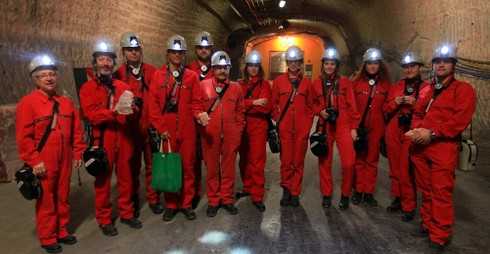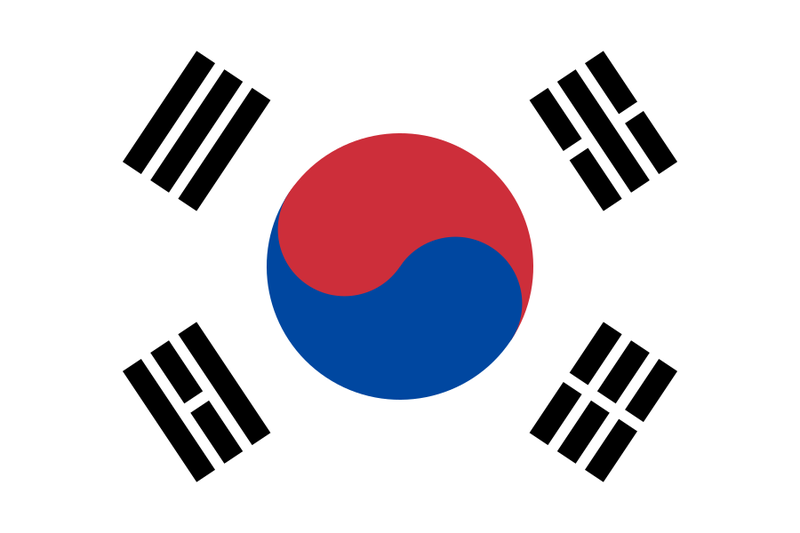NİLAY VARDAR REPORTED FROM GERMANY
Germany Shuts Down Reactors, Turkey Builds, Why?
While Turkey is eagerly signing deals to establish its first nuclear power plant in a foreseeable future without discussing potential perils of nuclear energy, Germany has been dealing with nuclear waste for the past 35 years.

* At a salt mine 930 meters below ground
Following the disaster in Fukushima, Germany has decided to shut down all its nuclear reactors by 2022. The decision also re-ignited the nuclear waste storage issue that troubled the country for 35 years.
Located two hours away from Berlin, the district of Gorleben has become a major destination in Germany anti-nuclear lobby, especially when truck loads of nuclear waste are being transferred to a storage facility at a nearby salt mine underground.
Along with a dozen journalists from Turkey, I was invited by Henrich Böll Stiftung Foundation to visit nuclear waste storage facilities in Gorleben, Germany.
No consensus on ultimate storage facilities
One of the most controversial aspects of nuclear energy is its waste storage. No country, so far, has resolved this issue. Scientists have yet to reach an agreement on whether it is safer to store nuclear waste in ultimate storage facilities underground or just on more ordinary storage facilities on the ground. In 2005, Germany banned the re-usage of nuclear waste in various side industries, saying that it might fall into the hands of terrorists who might potentially use it as a weapon.
Turkey never discussed nuclear waste
No nuclear waste management plan has been announced by Turkish government yet. There are rumors that Russia might purchase nuclear waste produced from Turkey’s first reactor in Akkuyu, Mersin province.
Upon their activation, nuclear reactors start producing nuclear waste. Initially, this waste is contaminated in barrels and transferred to an intermediate storage facility where it is kept for 40 years. Nonetheless, some waste material doesn’t lose radioactivity for 250,000 years and there are endless debates on how to store or restore them.
More than 35 years to complete facility
* Ultimate nuclear waste storage facility located 3 kilometers away from a river
Pioneers in nuclear waste storage research, Finland and Sweden are making plans to store their nuclear waste in granite rocks, while Germany decided to do the same in salt mines. The decision on the storage material depends on the distribution of geological resources. Establishing its first nuclear power plant in 1968, Germany has chosen the salt mines located in Gorloben as its major nuclear waste storage area. However, the decision has been out off for 10 years due to political reasons, and now an implementation is on the way to resolve the political disagreement. Because the inhabitants of Gorloben has never been persuaded on the security of nuclear waste storage facility with a solid scientific evidence.
Waste to be store in salt
A delegation of 9 journalists from Turkey have been 930 meters below ground to see the salt mines in Gorloben. Germany spend over 1,6 million euros to establish the facility and there is still the risk that it cant be activated due to pressure from local lobbies.
The facility experts claim that salt mineral doesn’t contaminate gases for at least 250 million years. In this way, they hope to store the waste in salt crystals.
There is no “0 risks”
There is no “0 risks”, experts said. “The whole point is to store the waste as secure as possible.” The German government is looking for ways to reach the waste 500 years later in case new technologies will make it possible to re-use or recycle the nuclear material. However, nobody can estimate from now what earth will look like in 500 years.
At the intermediate storage level
After visiting the ultimate waste storage area below ground, we went to the intermediate storage level which costs 50 million euros to Germany and two thirds of it full already. The facility will leave its post to the ultimate storage facility once the project is complete.
Jürgen Auer, PR representative of the facility, said the barrels did not contaminate any radiation at all, but it risked becoming a target of terrorist attacks. “The ultimate storage facilities are cost-efficient and we are insisting to build them because of moral responsibility,” he said.
Salt mine security issues
Lately, there has been a flooding accident in another salt mine in Asse, Germany. Even though Germany insists that below ground facilities are the safest way to store nuclear waste, the incident proved once more of potential risks. Now nobody knows how water will evacuated from the storage facility. The situation of stored nuclear waste is also unknown.
Farmers of Gorloben
Following our facility visits, we went to downtown Gorloben where people seemed not happy at all to have a nuclear storage facility right outside their city.
“We chose a yellow cross (which looks like the letter x) sign to represent the arrival of trainloads of nuclear waste, because we don’t know when they are coming,” a farmer said.
These yellow cross signs are ubiquitous around the city. Some farmers attempt to block the railway with their vehicles. Others even pave the railway with yellow pyramid-shaped bricks and out their hand in them. Farmers claimed that they have been assaulted by police forces to stop their protests. During the latest protest, the farmers blocked the railway for 15 hours.
Farmer struggle resumes
Monica Tietke, an organic farmer, said her family was in the business for 450 years.
“We don’t know how this facility will affect our farms here. There is no guarantee that it won’t affect the environment and people surrounding the area,” she said.
Tietke said Gorlebon farmers has been struggling to stop the facility construction for the past 35 years.
“There are controversies surrounding the facility. We had pine forests in the forests and many believe that a recent arson was caused by the facility construction. It might be a sabotage even.”
Gorleben farmers also said they have taken legal action to stop the facility from activating in the near future. “We want a reassessment of environmental costs. Until then, we will continue blocking the railways.” (NV/BM)



 Yesterday’s announcement, made during a visit to Seoul by Abdullah Gul, the Turkish president, revived hopes of a South Korean win in the country after a first round of nuclear contracts was awarded to Russian companies last month. “The memorandum of understanding marks the first government-level understanding of the will to co-operate on it,” Yoon Sang-jik, the senior secretary for knowledge economy at the office of the South Korean president, told the state news agency Yonhap.
Yesterday’s announcement, made during a visit to Seoul by Abdullah Gul, the Turkish president, revived hopes of a South Korean win in the country after a first round of nuclear contracts was awarded to Russian companies last month. “The memorandum of understanding marks the first government-level understanding of the will to co-operate on it,” Yoon Sang-jik, the senior secretary for knowledge economy at the office of the South Korean president, told the state news agency Yonhap.